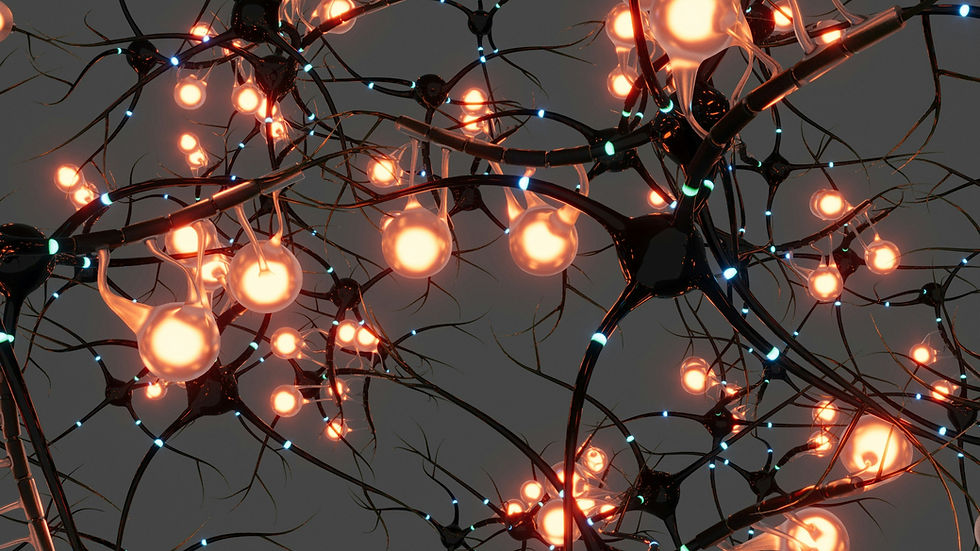Menopause Symptoms and Their Connection to Alzheimer’s Disease Risk in Women
- The Female Body

- May 13, 2025
- 3 min read

Menopause marks the natural end of a woman’s menstrual cycle, typically occurring in the late 40s or early 50s. This transition can begin years earlier during perimenopause, a phase when hormonal fluctuations, especially in estrogen, bring on symptoms such as hot flashes, mood swings, and irregular periods. After periods stop completely, women enter postmenopause, where symptoms may persist or new ones may arise. Understanding menopause is crucial, as these symptoms could offer insights into future health risks, including Alzheimer’s disease.
The Link Between Menopause and Alzheimer’s Disease
Alzheimer’s disease, the leading cause of dementia, affects memory, emotional health, and independence. Women are twice as likely to develop Alzheimer’s as men, and while age was traditionally seen as the primary factor, new research suggests that hormonal changes during menopause could also play a significant role.
Estrogen is vital not only for reproduction but also for protecting brain health. It supports memory, strengthens neural connections, regulates mood, and helps clear harmful proteins from the brain. When estrogen levels decline during menopause, these protective benefits weaken, leaving the brain more vulnerable to cognitive decline and dementia.
Hormonal Changes and Their Impact on Brain Health
The drop in estrogen levels during menopause can affect both the brain and the body. For years, menopause symptoms were thought to be temporary, physical side effects of this transition. However, recent research suggests that these symptoms may indicate underlying brain changes, potentially linking them to an increased risk of dementia.

Research Insights: Symptoms and Future Cognitive Health
A study led by Dr. Zahinoor Ismail from the University of Calgary explored the connection between menopause symptoms and future cognitive and behavioral changes. The research, which involved 896 postmenopausal women, analyzed how the number and type of symptoms experienced during perimenopause could be linked to later cognitive and behavioural health.
The results revealed that women who experienced a higher number of symptoms during perimenopause, such as hot flashes and night sweats, were more likely to show greater cognitive and behavioural changes later in life. These findings suggest that the burden of perimenopausal symptoms might be more than just a temporary discomfort—it could be an early indicator of long-term brain health risks.
The Role of Estrogen in Cognitive Protection
Interestingly, the study also found that women who used estrogen-based hormone therapy to manage perimenopausal symptoms showed fewer behavioural changes compared to those who did not use hormone therapy. This suggests that estrogen may have a role in reducing the risk of dementia, although more research is needed to fully understand the effects of hormone therapy on long-term brain health.
The Need for Further Research
While the study indicates a relationship between the number of menopausal symptoms and later cognitive changes, it does not prove causality. More research is needed to understand why this connection exists and how it affects women’s long-term brain health. However, recognising menopause symptoms as potential early warning signs of dementia could lead to earlier detection and intervention.
Why This Research is Important
The findings from this study underscore the importance of recognising menopausal symptoms as more than just part of a natural life transition. By understanding how these symptoms may indicate changes in brain health, healthcare providers could identify dementia risks sooner, potentially leading to better preventive measures and outcomes for women.
As research continues, studies like CAN-PROTECT, which examines aging and brain health, can help us understand the links between menopause and dementia. With further investigation, we can uncover ways to protect women’s brain health through menopause and beyond.




Comments